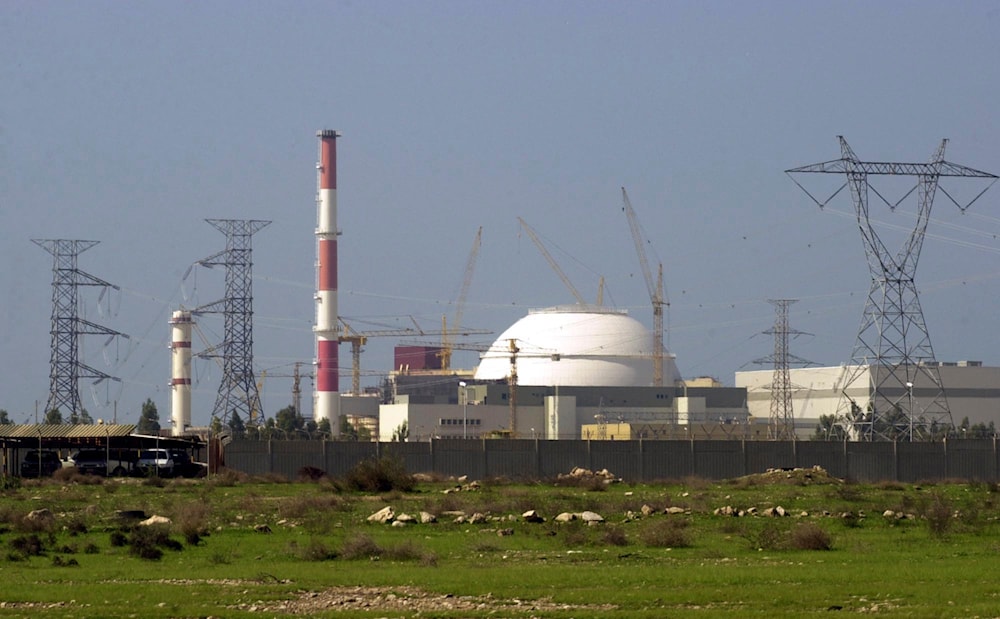Talks to end Iran’s peaceful nuclear program won't happen: UN mission
Iran's mission to the UN's statements comes amid heightened tensions between Iran and the US, after Trump claimed he sent a letter to Iran proposing negotiations for a new nuclear deal.
-

The reactor building of Iran's nuclear power plant and electricity poles are seen at Bushehr, south of the Iranian capital Tehran, Feb. 27, 2005 (AP)
Iran is open to negotiations with the United States if they are aimed at addressing concerns regarding any potential militarization of Tehran's nuclear program, Iran's UN mission said Sunday.
However, in a post on X, the UN mission asserted that any negotiations meant to dismantle Iran's peaceful nuclear program will never take place.
"If the objective of negotiations is to address concerns vis-à-vis any potential militarization of Iran’s nuclear program, such discussions may be subject to consideration. However, should the aim be the dismantlement of Iran’s peaceful nuclear program to claim that what Obama failed to achieve has now been accomplished, such negotiations will never take place," a post on the official X account of the Permanent Mission of the Islamic Republic of Iran to the United Nations in New York said on Sunday.
If the objective of negotiations is to address concerns vis-à-vis any potential militarization of Iran’s nuclear program, such discussions may be subject to consideration. However, should the aim be the dismantlement of Iran’s peaceful nuclear program to claim that what Obama…
— I.R.IRAN Mission to UN, NY (@Iran_UN) March 9, 2025
Iran stands its ground against the United States
This comes amid heightened tensions between Iran and the United States, as US President Donald Trump imposes his "maximum pressure" strategy on Tehran as a negotiation tactic against the Islamic Republic amid renewed allegations that the latter is building nuclear weapons.
Trump said during a Fox Business Network interview that he hoped Iran will resume talks, noting that he hopes "[Iran] is going to negotiate because it's going to be a lot better for Iran," framing Tehran's situation as being at a crossroads between diplomatic and military action.
Sayyed Ali Khamenei, the Leader of the Islamic Revolution and the Islamic Republic of Iran, denounced what he described as "bullying tactics" on March 8, following US President Donald Trump's revelation a day earlier that he had sent a letter to the Iranian leadership while threatening military action against the country.
The Iranian Parliament Speaker Mohammad Bagher Ghalibaf echoed this stance, emphasizing that Tehran "firmly rejects negotiations under threats," pointing out that any negotiations pursued with the intent of extracting concessions through pressure would fail to result in the lifting of sanctions.
Iran's Mission to the United Nations denied receiving such a letter from Trump, according to an Iranian spokesman speaking to RIA Novosti.
Earlier, Iranian Foreign Minister Abbas Araghchi said that Tehran will not resume negotiations with the US regarding its nuclear program as long as the Trump administration resumes its "maximum pressure policy."
"You cannot destroy a nuclear program through an attack," Araghchi stated, emphasizing that the nuclear technologies Iran has achieved and "knowledge ingrained in minds" cannot be bombed.

 3 Min Read
3 Min Read








